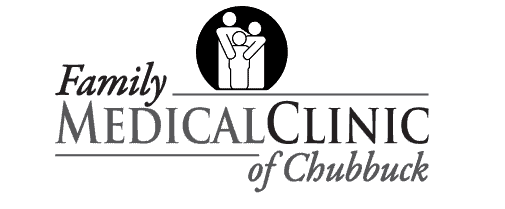What is Women's
HRT?
(Hormone Replacement Therapy)
What is Hormone Replacement Therapy (HRT) for women?
Dr. Barlow is a certified BioTE Bioidentical Hormone Replacement Therapy provider. Hormone replacement therapy (HRT) is a medical treatment that involves the use of hormones to alleviate the symptoms of hormone imbalance in women. Women as young as their 20’s can experience hormone imbalance. As women age they begin to experience other changes in their hormone production and become even more susceptible to symptoms of hormone imbalance as they approach menopause. Hormone replacement therapy can involve optimizing estrogen, progesterone, testosterone, thyroid, and occasionally other hormone treatments.
Symptoms of hormone imbalance can significantly impact a woman’s quality of life and overall health. Hormones play an essential role in regulating the body’s physiological functions. Hormone imbalance can lead to symptoms such as fatigue, brain fog, mood changes, anxiety, hot flashes, night sweats, vaginal dryness, decreased sex drive, and changes in body composition and weight.
Hormone therapy can supplement suboptimal hormone levels in women, thereby reducing or eliminating their symptoms. Special care must be given to developing a safe, effective treatment plan to help women feel their best while maintaining a healthy outlook for their future.
The therapy recommended will depend on a woman’s needs and medical history. Dr. Barlow typically prescribes hormone therapy after completing a thorough lab evaluation to identify the specific needs of the women he treats. Hormones are monitored regularly to ensure treatment effectiveness and assess any potential risks or side effects.
When Should Women Start HRT?
The decision of when to start hormone replacement therapy (HRT) is typically based on a woman’s health status, medical history, and personal preferences. In general, HRT is recommended for women who are experiencing moderate to severe symptoms associated with hormone imbalance. Dr. Barlow uses a specialized screening instrument to determine symptom severity.
A woman’s breast health, family and personal history, lifestyle, and surgical history, such as a history of hysterectomy (removal of the uterus and/or ovaries) are all considered in determining whether HRT is appropriate and safe. Adjustments can be made to treatment plans for women with a history of breast cancer or other prior health condition they may think would keep them from receiving HRT.
For menopausal women, the timing of starting HRT may vary depending on a variety of factors. For example, women who undergo menopause at younger than average ages may be at higher risk for osteoporosis and cardiovascular disease and may benefit from starting HRT earlier.
It is important to note that HRT is not suitable for everyone, and certain medical conditions or risk factors may make it less safe. Therefore, women considering HT should discuss their options with Dr. Barlow, who can help weigh the potential benefits and risks based on their individual circumstances.
How Do Women Know If They Need HRT?
Submitting our Female Health Assessment online is a great way to start the process of determining whether HRT is right for you. The decision to use hormone replacement therapy (HRT) should be made in consultation with Dr. Barlow and based on a thorough assessment of an individual’s symptoms, medical history, and overall health. Some common signs and symptoms that may indicate a need for female hormone therapy include:
- Chronic Fatigue, Weight Changes, Brain Fog, Insomnia, Mood, and Energy Changes.
- Menopausal Symptoms: Women who experience hot flashes, night sweats, vaginal dryness, and mood changes may benefit from hormone therapy to alleviate these symptoms.
- Reduced Bone Density: Women with osteoporosis or low bone density may benefit from hormone therapy to help improve bone health.
- Sexual Dysfunction: Women who experience pain during sexual intercourse or a reduced sex drive may benefit from hormone therapy to improve sexual function.
- Surgical Menopause: Women who have had their ovaries removed may experience more severe symptoms of menopause and may benefit from hormone therapy to alleviate these symptoms.
- Premature Menopause: Women who experience menopause before age 40 may be at higher risk for health complications, such as cardiovascular disease and osteoporosis, and may benefit from hormone therapy.
It is important to note that hormone therapy requires a formal medical evaluation, lab testing, and treatment planning. Therefore, women considering hormone therapy should discuss their options with Dr. Barlow, who can help weigh the potential benefits and risks based on their individual circumstances.
Visit Dr. Barlow And The FMCC Team!
Hormone replacement therapy can effectively treat women experiencing symptoms related to menopause, reduced bone density, sexual dysfunction, fatigue, or other symptoms discussed above. However, it is essential to consult with Dr. Barlow to determine if hormone therapy is right for you and to closely monitor your treatment to ensure its effectiveness and assess potential risks or side effects.
For those seeking a reliable medical professional to help guide them through the hormone therapy process, the Family Medical Clinic of Chubbuck offers a range of services for women’s health needs, including hormone replacement therapy. Dr. Barlow and the clinic’s team of qualified medical professionals can provide personalized and compassionate care to help you navigate the process of hormone therapy and manage any related symptoms.
Contacting the Family Medical Clinic of Chubbuck can significantly improve your overall health and quality of life!





